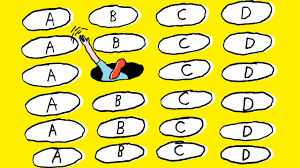
In the fast-paced world we live in, the ability to absorb, retain, and understand information effectively is an invaluable skill. Whether you’re a student, a professional, or just someone looking to improve your knowledge base, knowing how to enhance your retention and understanding is essential. If you want to become a superlearner and optimize your learning process, these proven tips will guide you toward greater cognitive efficiency.
1. Engage in Active Learning Techniques
Passive reading or listening often results in low retention rates. To become a superlearner, engage in active learning. This means participating in activities that involve analysis, evaluation, and synthesis of information.
- Summarize Information in Your Own Words: After reading a chapter or listening to a lecture, pause and explain the main points to yourself or someone else. This reinforces the material and clarifies your understanding.
- Ask Questions: As you study, pose questions that challenge your understanding and force you to seek answers actively.
2. Utilize Spaced Repetition
Spaced repetition is one of the most effective techniques for improving retention. It involves reviewing material at gradually increasing intervals. This strategy strengthens your memory by prompting your brain to recall information more efficiently over time.
- Use Flashcards: Digital tools like Anki or Quizlet help automate spaced repetition with customizable flashcard decks.
- Create a Study Schedule: Plan out review sessions to revisit information at strategic points, such as one day after learning, one week later, and again after one month.
3. Implement the Feynman Technique
Named after the Nobel-winning physicist Richard Feynman, this technique helps deepen your understanding by teaching concepts in a simple way. The idea is that if you can explain a topic in plain language, you truly understand it.
- Break Down Complex Ideas: Write down the concept you are learning and explain it as if teaching someone with no prior knowledge.
- Identify Knowledge Gaps: As you simplify your explanation, note areas where you struggle and focus on improving your understanding in those parts.
4. Practice Mind Mapping
Mind maps are visual tools that help organize and connect information. By structuring data in a non-linear way, you can better understand relationships between ideas.
- Create a Central Node: Start with the main topic at the center and branch out with subtopics and details.
- Use Colors and Images: Enhance your mind map with visual elements to boost recall. Studies have shown that the brain responds better to images and colors compared to plain text.
5. Stay Physically Active
Exercise doesn’t just benefit your body; it’s also a powerful way to enhance your cognitive function. Regular physical activity improves blood flow to the brain, supports neural growth, and promotes the release of chemicals that enhance learning.
- Incorporate Aerobic Exercise: Activities such as jogging, swimming, and cycling are particularly beneficial for brain health.
- Do Short Exercise Bursts: Even brief 10-minute exercise sessions can increase mental alertness and improve memory retention.
6. Sleep: The Ultimate Memory Consolidator
Sleep plays a crucial role in memory formation. During sleep, the brain consolidates information learned throughout the day, moving it from short-term to long-term memory.
- Prioritize Quality Sleep: Aim for 7-9 hours of uninterrupted sleep to support optimal memory consolidation.
- Avoid Late-Night Cramming: Studying late at night at the expense of sleep can negatively impact your memory retention and understanding.
7. Nourish Your Brain with the Right Diet
Your brain requires fuel to function effectively. A nutrient-rich diet can enhance memory, concentration, and understanding.
- Consume Omega-3 Fatty Acids: Found in fish, flaxseeds, and walnuts, omega-3s are known to improve cognitive function.
- Stay Hydrated: Dehydration can impair your focus and short-term memory, so drink plenty of water throughout the day.
- Incorporate Antioxidants: Foods like berries, leafy greens, and dark chocolate are packed with antioxidants that help combat oxidative stress, protecting your brain cells.
8. Leverage the Power of Association
Creating mental connections between new information and things you already know can greatly improve retention. This is known as associative learning.
- Use Mnemonics: Create acronyms or rhymes that help you recall lists or complex concepts.
- Create Vivid Mental Images: Picture concepts in your mind in an exaggerated, memorable way. For example, if you’re trying to remember a series of historical events, visualize them as an animated timeline in your mind.
9. Practice Retrieval to Strengthen Memory
Testing yourself on the material you’ve learned is a powerful way to reinforce your memory and understanding. This process, called retrieval practice, strengthens your recall capabilities and identifies knowledge gaps.
- Take Practice Tests: Simulate exam conditions by timing yourself and answering questions without looking at your notes.
- Teach What You’ve Learned: Teaching forces you to retrieve and explain information, solidifying your understanding.
10. Limit Multitasking to Stay Focused
When you divide your attention, your brain struggles to process information deeply.
- Set Clear Study Blocks: Dedicate specific periods to focused, single-task studying.
- Use the Pomodoro Technique: This method involves studying for 25 minutes followed by a 5-minute break, which can enhance focus and retention.
11. Engage in Regular Reflection
Reflecting on what you have learned helps solidify your understanding and make connections between concepts.
- Journal Your Learning: Spend a few minutes each day writing about what you’ve learned and how it relates to other knowledge.
- Review Notes: Regularly go back over your notes to reinforce the material and ensure it sticks.
12. Embrace Lifelong Learning for Continued Growth
Becoming a superlearner isn’t just about short-term gains—it’s about cultivating a mindset of continuous learning. Lifelong learners consistently seek out new knowledge and experiences, which helps keep the brain sharp and adaptable.
- Stay Curious: Ask questions and pursue answers in fields beyond your comfort zone.
- Join Learning Communities: Participate in workshops, seminars, or online forums where you can share insights and learn from others.



